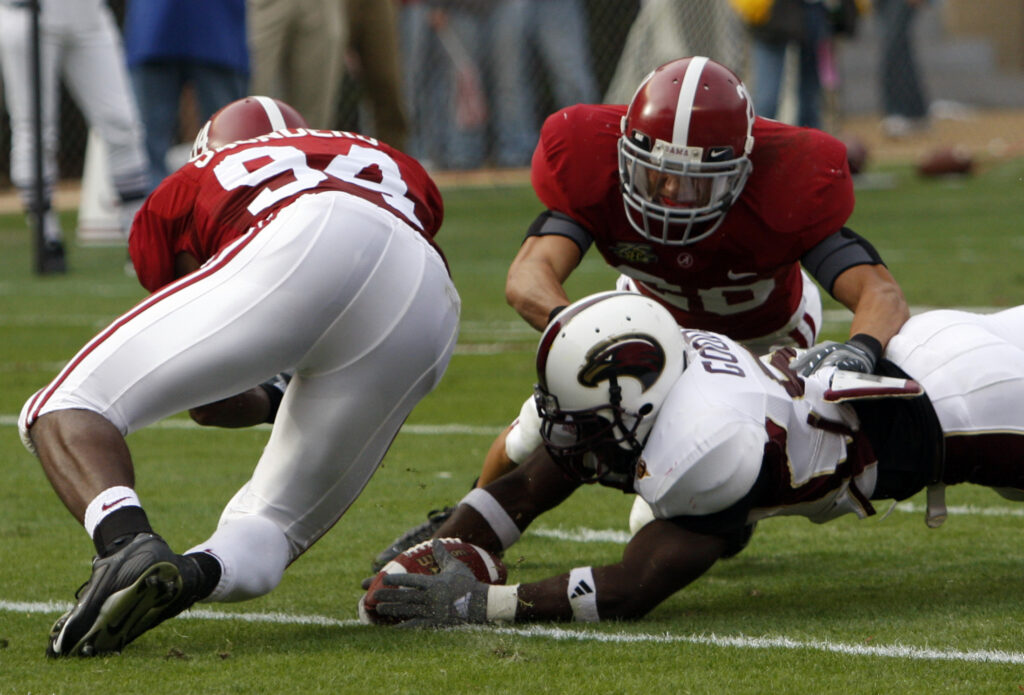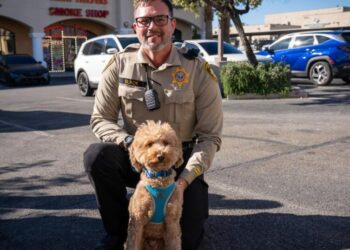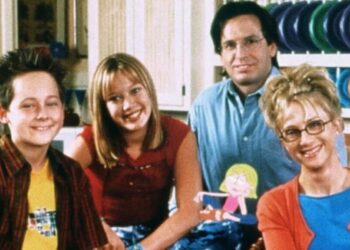Most days end at midnight, but some carry on roughly forever, a premise true for weddings and births but never any truer than in sports, in which athletes crave championships but also, curiously, single days that feel like daydreams. A golfer shoots a 59 one day and revels in it until he or she stops breathing, regardless whether it helped snare a trophy. A pitcher throws a perfect game, and the dugout empties to the mound even if it’s irrelevant to playoff scenarios. A football team goes 6-6 but lasts forever because of Nov. 17, 2007, when it had itself a daydream day.
That day and that team come back to life — or should — every November at right about the time the SEC plays its annual weekend in which the big-moneyed programs invite the less-moneyed and the far-less-moneyed to serve as tuneups for rivalry games next week or as record-padding stress reduction or as well-compensated prey. This Saturday brings Eastern Illinois at No. 10 Alabama, Mercer at Auburn, Western Kentucky at LSU, Charlotte at No. 4 Georgia, Samford at No. 3 Texas A&M and Coastal Carolina at South Carolina. Mississippi got the jump on the ritual two Saturdays ago, already playing and leveling The Citadel.
It’s that annual Saturday when the tailgates feel low on worry if still high in gluten. The matchups go lamented far and wide, an offshoot ritual itself. The games go forgotten by sundown if not by halftime. Libations abet the forgetting. If by chance one of these foregone conclusions could wriggle itself from the muck and prove unforgettable — especially if it happened against, say, Nick Saban — it would qualify as the kind of day that lives on through 18 years and counting, even as a key participant in the game has turned 40.
“It comes up a lot more than you would actually think,” Quintez Secka said. “I typically don’t bring it up, but I have tons of friends that, anywhere we go, and if there’s a sporting event, especially [involving] Alabama, they will bring it up and tell everybody in the world. … You know, it’s 18 — it’s close to the 20-year anniversary, and it’s still front of mind. Still a topic that everybody will bring up.”
He speaks of little-known Louisiana Monroe’s 21-14 win over long-storied Alabama on Nov. 17, 2007, a game that occurred back when the SEC tradition of dining on November cupcakes hadn’t congealed as a thing. A game in which the cornerback/safety Secka had two interceptions. A game that works its way into the workplace. “I am a client solutions executive for AT&T,” Secka said by phone, and that entails meetings with “global enterprise companies” and “Fortune 500 companies from the U.S.” Prep work precedes meetings. “When they start researching my name,” Secka said, “that’s the one thing that pops up first. So, I would say, one out of [every] three times, somebody will say, ‘Did you play Alabama?’”
He did play Alabama 14 months after the Alabama of 2006 throttled the Louisiana Monroe of 2006, 41-7, and as a 4-6 Louisiana Monroe team of 2007 with a nickname most Americans wouldn’t know (Warhawks) visited a 6-4 Alabama team with a nickname most Americans and Steely Dan would know (Crimson Tide). Secka’s 42-yard interception return to the Alabama 1-yard line late in the first quarter rated among the plays that ushered Saban’s first Alabama team into a thicket, and ULM’s four defensive stops of the Crimson Tide during a scoreless fourth quarter helped Secka toward uncommon eloquence on the subject of what it’s like to play before humongous crowds.
“From when we took the lead [late in the third quarter], every play that they didn’t make, you could ‘hear’ it in the crowd,” Secka said, soon adding, “When it [the tone] switches, I believe it does something, and I believe it does something for both [sides].”
ULM had played Clemson and Texas A&M that year, other monsters other years. “I always say that Clemson, Georgia and Alabama, you can throw LSU in there as well” — he later added Texas A&M — “they have the craziest fan bases. I can be three feet next to you, and with those crowds, I can talk to you and you can’t hear me. It was that loud.” He said, “They get so loud that sometimes you kind of forget what you’re supposed to do.”
Then the stops kept coming, including Alaric Coleman and David Cooper and Theo Smith halting two Alabama runs after a third and two from the ULM 18-yard line with two minutes left. “Just looking around the crowd, it was eerie how hushed it was,” Secka said. “You could see thousands of people, and you could hear a pin drop.” He said, “When they say crowds make impacts on games, they absolutely do, and one of the things you notice is when they’re not involved.” Suddenly, he said, “You can hear your heartbeat.” It’s something, he said, “you can’t replicate.”
Once the home players “hear that many people go quiet,” he said, “it adds to the pressure.” He said, “It’s one of those things that I try to explain to people, and you can’t.”
Eventually, the boos did rain, which meant the Alabama seniors heard booing at the exit of all their years of toil in the heat. ULM Coach Charlie Weatherbie, formerly the Navy helmsman, called it the “number-one win” in his five seasons to that point with the Warhawks. A ULM booster bought a billboard on Interstate 20. Saban apologized to supporters and told reporters, “This is not the kind of football that we intend to play here.” He said, “We’ll get it fixed,” and in the annals of the coach cliché we’ll-get-it-fixed, nobody has ever we’ll-get-it-fixed with such oomph. Saban would dabble in madness by Monday, noting how greatness can sprout from the lowest lows but using 9/11 and Pearl Harbor as examples. His program would lose once more the next week (to Auburn), then win 200 times in its next 223 games across 16 storied years.
“We kind of credit ourselves with that dynasty,” Secka said, gloriously.
But first, on the field, in the gauzy mayhem of the postgame, Secka had a thought. “You know, it’s chaos, everybody celebrating,” he said, “but again, Nick Saban is Nick Saban. I’m thinking, Where is Nick Saban?” He aimed to shake hands with Nick Saban, that star coach of the 2003 LSU national championship. Well, Saban had “9,000 bodyguards,” Secka recalls, so Saban walked right on by, close enough for Secka to make an accurate reading of Saban’s mind. “You could tell his mind frame is ‘We lost, and I’m trying to figure out what to do.’ I’m trying to get to the guy, and it’s just not happening at all. ‘What errors can we correct? How can we correct this?’ I could easily tell by looking, in his brain, he wasn’t noticing anybody.”
A sturdy strand of college football history lurks in that recollection, but the daydream day had begun its still-ongoing life. “The locker room, we absolutely destroyed that thing,” Secka said. “We go in, and I don’t know where they found — it was like champagne bottles, and I don’t think it was actual liquor. It was like grape juice champagne. These bottles of fake champagne came, and we were just spraying that everywhere. I remember thinking, ‘Whoever has to clean this, I am sorry.’”
He said, “I needed goggles.”
He hadn’t brought goggles.
“I don’t even know where they found, like, the fake champagne. The bottles came out of nowhere.”
Flying home brought another wow. “We landed,” Secka said, and as they descended the airplane stairs to the tarmac in the darkness, “It was like the whole entire city of Monroe was already at the airport.”
So as another batch of alleged cupcakes head to slaughter this weekend, Secka advises: Don’t just lose to the name. “Sometimes it’s not the player; you’re playing against the name [of the larger program]. It’s the lore. Now, that name on the front of the jersey doesn’t matter; it’s the person that’s in front you. If you can get past the name …”
He and his mates got past the name for good in the tunnel heading to the field for the second half, with the score 14-14. That’s where they noticed that DJ Hall, the tip-top Alabama wide receiver who had missed the first half while suspended, appeared in pads and helmet. Saban would say he curbed Hall’s suspension out of compassion given Hall’s final home game, but some Warhawks had a useful hunch that provides a helpful peek into the athletic mind. “He was fully suited and talking crap, talking trash,” Secka said. “So at that moment, Nick Saban was taking us seriously. I don’t know if they knew how much confidence that gave us. ‘Why is he playing the second half?’ You’ve got to be worried at that point.”
“That gave us confidence: ‘We’re doing something right. They’re worried about us,’” Secka said, and that steered them to a day so everlasting it still comes up even in company meetings.
The post Every year, SEC powers play a cupcake. When an upset comes, it’s eternal. appeared first on Washington Post.




